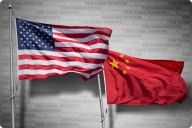You have /5 articles left.
Sign up for a free account or log in.
In the wake of the demonstrations at the University of Missouri that led to the resignation of the university’s president, student protests over racial inequality and campus climate have spread to colleges across the country.
Though the demonstrations have included a broad range of minority groups and white students, they have predominantly been organized by black students. At a handful of institutions, however, white students have tried to lead the rallies, prompting accusations that these students are engaging in the same kind of behavior as those they are protesting.
Last week, a student at Cornell University announced that he was organizing a rally called #ConcernedStudent2015, a play on Concerned Student 1950, the name of the group and hashtag behind the Missouri protests. The year 1950 was when black students were first admitted to the University of Missouri.
Nearly immediately after the Cornell student created a Facebook page advertising the event, black students began to criticize the protest and its intentions.
“We would like to point out the lack of people of color in the planning and attendance of this protest,” Black Students United, a student group at Cornell, posted on the page. “While we appreciate the solidarity and interest of our allies across campus, we would like to be able to address prejudice on this campus and campuses like it in our own way. In the future, please ask how you can support us before organizing on your own. With that in mind, we would appreciate the cancellation of this event.”
Movimiento Estudiantil Chican@ de Aztlan de Cornel, a Mexican American student group, condemned the event in even stronger terms.
“Racism destroys because it is backed by power, policy and action,” the student group said in a statement posted to Facebook. “As students of color, directly affected by racial discrimination, the power to dictate how change must come about is ours. The #ConcernedStudent2015 protest disregards this notion, and instead perpetuates a white savior complex, placing the power to decide change in the hands of those not living our realities. In order for change to benefit the most oppressed students, our voices must be taken into account and must be at the forefront of these movements.”
Others accused the organizer of creating the event in an act of self-promotion, calling the planned protest insincere and “a complete mockery.” The organizer, Will Isenberg, is an aspiring entertainer who is known around campus for his attempts at satire. Shortly after the criticism surfaced, Isenberg -- who goes by the alias William Heisenberg -- canceled the event.
In a statement posted to the event’s Facebook page, Isenberg apologized for creating the event, but defended his motivations.
“I was not in any way intending to make light of the current, serious issues, but I now realize why people did not think I was being serious,” he wrote. “I have learned that other groups are planning protests of their own, so I would encourage you all to attend those. Thank you for calling me out on my ignorance.”
Also last week, a similar situation unfolded at the University of Colorado at Boulder.
Students enrolled in Whiteness Studies -- a course that, according to its description, examines the “development of whiteness from past white supremacy, current colorblindness to possible future multiculturalism” -- decided to organize a rally and promote it using the hashtag #CUStandsWithMizzou.
Unlike the event planned at Cornell, the organizers of the event included students of color. However, many of the students involved are white, and the organizers did not contact the university’s Black Student Alliance or other similar student groups when planning the event.
Hillary Potter, an associate professor of ethnic studies at the university, said in a Facebook post that several black students told her they felt “further marginalized and silenced by not being consulted about these actions.” Leaders of the Black Student Alliance agreed, saying that they felt silenced by the event and how it was planned without their consultation, and that demonstrations would be more orderly and effective if they were not planned by different groups without coordination.
In a comment posted to Facebook, Paris Ferribee, co-president of the Black Student Alliance, said she felt that the students were only hosting the rally to “be part of a fad.” She said a black student in the class had warned the other students against organizing the demonstration, but the black student was ignored.
“So whose agenda were they standing for?” Ferribee asked. “Who were they protesting for and what exactly were they protesting? To be a part of a movement that is much bigger than just protesting. Just to protest is problematic.”
On Friday, Azabe Kassa, one of the event’s organizers and a student in the Whiteness Studies course, apologized to the Black Student Alliance on Facebook.
“We realize that we acted impulsively and should have consulted with Black Student Alliance,” Kassa wrote. “We acknowledge that we should have contacted BSA to see what they were already planning with regard to Mizzou. While we understand that this does not excuse our actions, we learned a lesson in proper allyship. We still hope to work with BSA to support your efforts and to stand in solidarity with black students.”








